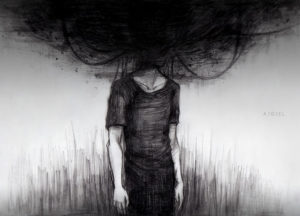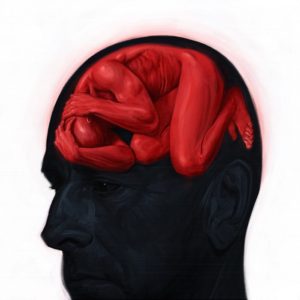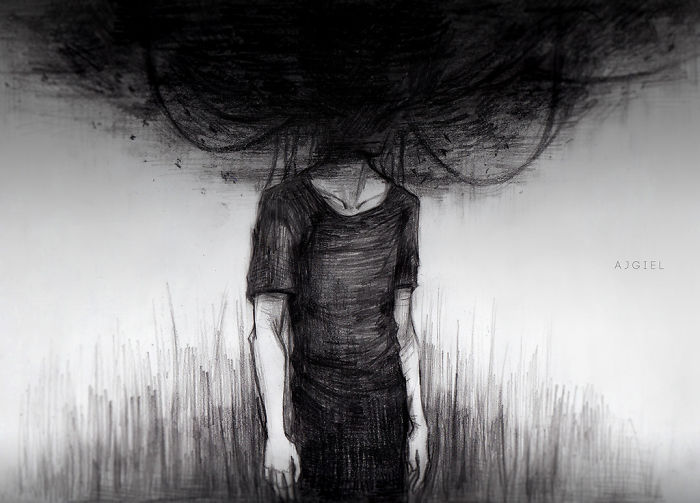Depression can be a big scary black cloud when it affects someone you love and deeply care for. It feels like the person you once knew is no longer present. It feels like you can no longer connect and all the things you used to say and do that once made sense, are no longer relevant. Careless people use the word “depression” recklessly and over silly little things that cannot even compare to people who are genuinely depressed. You hear things like “I can’t go out tonight, I’m so depressed” or “I’m so depressed, he won’t call me back!” It’s not that simple and it’s unfair to use it so lightly.
When a family member or someone you love is struggling with depression, you may feel confused, frustrated and troubled. You may feel like you need to walk on eggshells because you’re consistently afraid of upsetting them or even worse; sending them off the edge. Maybe you’re at such a loss that you refrain from speaking at all and adopt the silent approach instead. Or maybe, just maybe, you’re more courageous and try to speak up and give them advice as best you know how, which they aren’t taking anyway. Dealing with a depressed loved one can be one the hardest challenges. You can read about it but you’ll never fully understand how it feels unless you’ve experienced it.
This is exactly why I sat down with clinical psychologist, Menna Ziad, to get insights on how to better deal with someone battling with depression. Here is what she had to say.
First of all, we need to stop using the term “depression” to describe feeling down or blue

Artist Clara Lieu depicts how depression looks like in art form
Normalizing the term “depression” has made us disregard the signs depressed people are actually giving us. When dealing with a depressed loved one, please refrain from saying things like “You’re fine, you just need to get closer to God.” Mental illness is exactly like any other biological/physical illness, it needs proper attention and treatment.
Try to be present and listen to what they have to say

Artist Ajgiel’s take on how depression feels like
Use phrases such as “I can only imagine what you’re going through” and not “I’ve been there before and it will get better.” Chances are, you’ve never been there before and they know it. On top of all that, they might find it offensive if you’re trying to implicate that you feel their pain.
Don’t try to undermine their pain by saying things like “It’s not as bad as you think” or “It’s all in your head”

Brain Sick by artist Robert Carter, showcasing how a depressed person can sometimes feel trapped inside their own head
Just be there, whether by listening to them, or simply holding their hand. Don’t try to offer advice because it could come off as insensitive. Instead, ask your loved one what they need, or how they are feeling. Try to educate yourself about depression and how you can be of help.
Ziad ended her talk with me by advising me to always practice compassionate listening and with ways on how to potentially identify someone struggling with depression.
Look for the Symptoms of Major Depressive Disorder

Artist Seb Maestro’s art piece, Mind Devour, on how depression creeps into one’s mind and devours them from the inside
The essential feature of a major depressive episode is a period of at least two weeks marked by either a depressed mood or a loss of interest or pleasure in nearly all activities. Not all the below symptoms need to be present in order to be diagnosed.
- Feelings of sadness, emptiness, or hopelessness
- Angry outbursts and irritability
- Insomnia or hypersomnia
- Significant weight loss or weight gain due to changes in appetite
- Fatigue or loss of energy nearly every day
- Difficulty thinking or concentrating or indecisiveness nearly every day
- Recurrent thoughts of death, recurrent thoughts of suicide, or a suicide attempt or plan
- Symptoms cause impairment in social and occupational functioning
It’s painful to see someone you love so much wasting away on a couch all day, refusing to interact with the outside world. It’s painful to see someone you love so much hold on to anger and the past so tightly, that they can barely seem to function without the obsession of wanting to get revenge. It’s painful and it’s painful because you want to scream: “I love you so much and you are so much better. You are so much smarter. You are worth so much more.” No matter how much you want to scream, you hold it in and you push through it.
Depression is a sinister, isolating disorder, which can sabotage relationships and break up families and must be dealt with in an effective and compassionate manner.



























